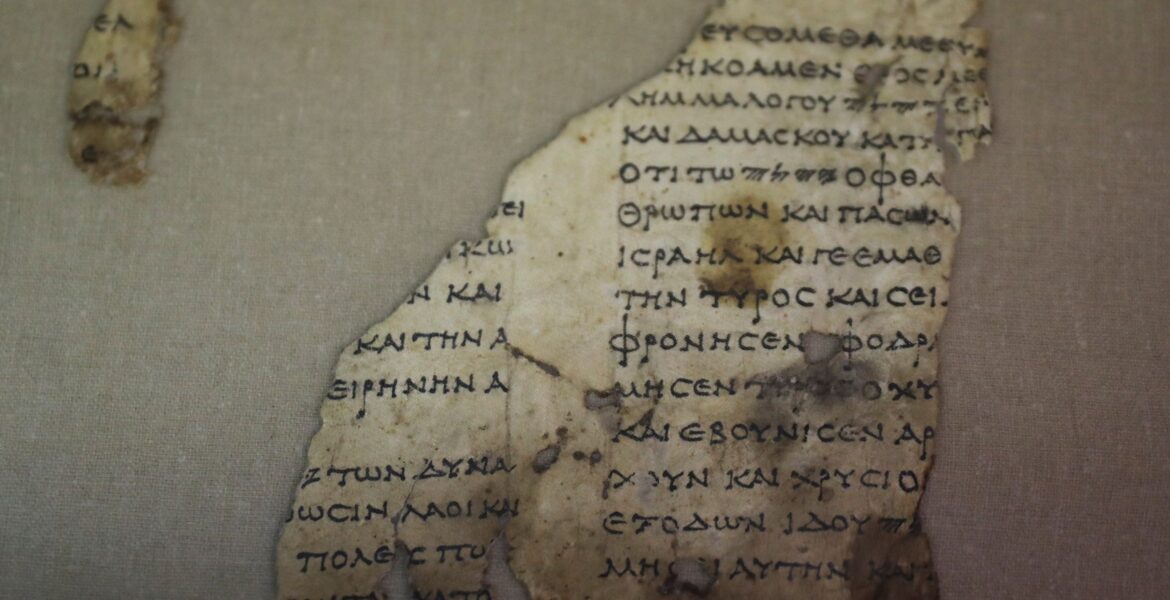New Discoveries of Old Scrolls
March 22, 2021 at 5:15 am Leave a comment

Last Tuesday, researchers unveiled newly discovered fragments of some Dead Sea Scrolls. These fragments represent the first discovery of Dead Sea Scrolls in over 50 years and contain verses from Zechariah 8:16-17 and Nahum 1:5-6. And there’s plenty notable about these discoveries.
First, the text of these fragments is written in Greek, the language of the New Testament, instead of in Hebrew, the language of the Old Testament, even though Zechariah and Nahum are Old Testament prophets. This is because these scrolls were written in the first century AD when the world spoke Greek. This is a reminder that the Jewish people treated their Hebrew Scriptures as eminently important, so they translated them into the lingua franca of the ancient world so that as many people as possible could read them and learn from them. They believed their Scriptures were good for the world and needed by the world.
Second, these fragments seem to indicate that there was some debate over how certain passages should be translated from their original Hebrew into the contemporary Greek of their day. The translation work in these fragments represents a revision of an older Greek translation of the Hebrew Bible. So, for instance, in Zechariah 8:17, the older Greek translation renders a Hebrew word ish as “each other.” The verse reads, “Do not plot evil against each other.” This fragment, however, notices that, in the Hebrew manuscript, ish is the first word in the sentence and therefore leaves it there, and translates it using its most common meaning of “man.” It translates: “As for a man, do not plot evil against his neighbor in your heart.” This shows that, dating all the way back into the first century, people took translating the Scriptures seriously, even debating how to best translate various verses and difficult grammatical constructions. Their goal was to provide as accurate a rendering as possible of the original language texts they had because they held the Scriptures in such high regard. They wanted to be supremely careful in how they translated these holy documents.
Finally, these fragments also, quite uniquely, use the personal name for God: Yahweh. The scrolls leave the name of God in Hebrew with Hebrew letters, even though these are Greek manuscripts. Traditionally, in an attempt to avoid coming even close to misusing God’s name, translators would address God formally as “Lord” instead of invoking God’s name personally as “Yahweh.” But these manuscripts get personal. These translators seemed to have wanted to emphasize that there is a personal God who cares about people – personally.
A discovery like this reminds us that people have long revered the Scriptures and treated them with the utmost care. These were always considered to be sacred documents. They were not exalted to such a status later. This discovery also provides us a window into the faith of our forefathers, who trusted in a personal God and His personal concern for them. From them, we have learned the faith. From them, we have learned the Gospel. And for them, we should be thankful.
Entry filed under: Current Trends. Tags: Antiquity, Christianity, Dead Sea Scrolls, Greek, Israel, Nahum, Prophets, Zechariah.
Trackback this post | Subscribe to the comments via RSS Feed